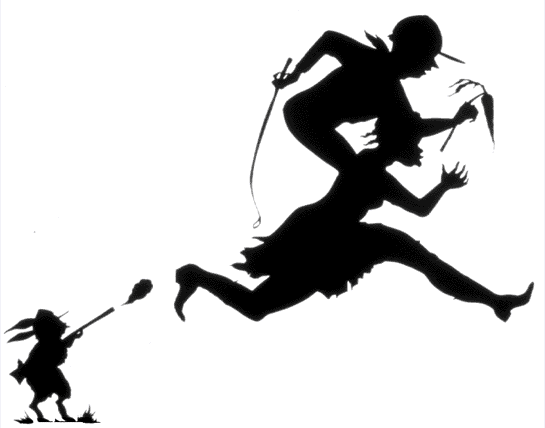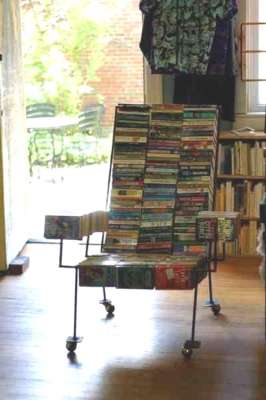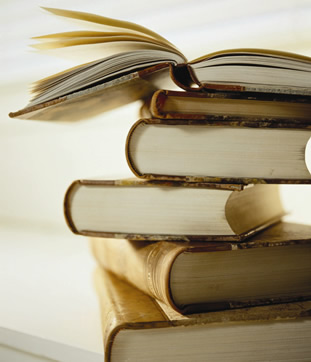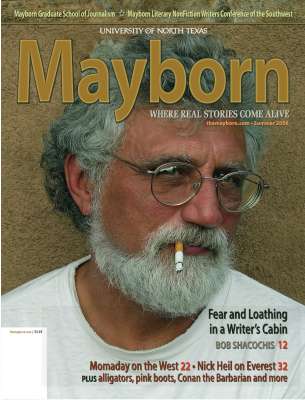main: July 2008 Archives

- Eric Alterman in The Nation on the accelerating deterioration of American newspapers:
The dearth of decent ideas designed to save newspapers--or reinvent them
for the digital age in ways that preserve their crucial democratic
functions--is curious and depressing....Take the example of the Tribune Company's new owner, Sam Zell..... To advise him on long-term strategy, he has appointed as "chief
innovation officer" Lee Abrams, a man who was apparently surprised to
learn that reports datelined "Baghdad" are actually produced by
reporters in Baghdad. His suggestion: "photos of the reporter with Iraqi
kids" to advertise this fact.
Writing on his blog, Abrams mused that newspapers were "TOO NPR," (caps
The more one listens to the men and women at the top of the industry,
in original), which he found "a bit elitist." He would rather have
newspapers "study the feel of a well honed All News Radio station,"
which he defines as "being INTELLIGENT... not intellectual."
the more it becomes obvious that the survival of the newspaper--the
primary information-gathering and knowledge-disseminating
instrument of American democracy--is going to have to come from
somewhere else
- Scott McLemee (and book/daddy in the comments section) on the loss of book review pages -- in part because of the abandonment by newspaper management of their public service commitments:
People at newspapers - not a majority by any means, but a significant core - once held respect, verging on reverence, for the
printed word as such. A sort of continuum existed between the world of
newspapers and that of books. The examples of H.L. Mencken, Carl
Sandburg, Ernest Hemingway, and Walter Lippmann seemed to prove it.
Each had been a journalist and gone on to write things of a more
durable nature; and knowledge of this possibility left its mark on
others. . . .
Over the years, book-review sections have existed because somebody in charge had a commitment to them - an old editor, perhaps, with an
unfinished novel in the drawer, stored beneath the shot glasses. The
oft-repeated claim that shrinking or abandoning book coverage is
economically justified because publishers have stopped buying enough
ads is nonsense. They never did; and anyway, no sports page depends on
business from the teams it covers. The willingness to keep book
sections alive was never rational in the narrowest sense. It manifested
a sense of participation in print culture; it tried to pay a debt of
honor.
Image from Mixed Ink blogSomewhere along the way, however, the book ceased to function as a reference point - an ideal model, a standard of seriousness, the outer
limit of one's sense of possible aspiration. Television took over that
role. (But only, it turns out, as a wedge: TV was only the first of the
screens that would define the way we live now.)

With the Amazon Wish List, book/daddy was vaguely aware that one can store the data on an assortment of items you want at the online retailer. But I was fuzzy on the fact that the list can be public. Anyone can log in and find out your heart's desires.
So imagine my surprise in learning -- via Scott McLemee -- that Archinect has compiled a list of notable listers -- a list of famous (and not-so-famous) authors, architects and artists' gift registries.
On the list, you can get glimpses of their bookshelves and CD collections, a peek into their personal tastes. What pop artist Ed Ruscha wants is a CD compiled by the late Hunter S. Thompson that's no longer in print. Deconstructionist architect Bernard Tschumi is looking for a book on graphic designers. Rem Koolhaas is a Trekkie. DJ Spooky hankers for the DVD of the 1973 espionage-and-black-revolution thriller, The Spook Who Sat By the Door.
That last one is so perfect, you can't help but laugh -- and then wonder whether someone has created a few of these lists as tongue-in-cheek jokes. For instance, Jacques Derrida has been dead for four years, but he still has an Amazon wish list. Ditto novelist Kathy Acker, who has been dead for 11 years. She has a brief but appropriate list. Were Amazon wish lists even around 11 years ago?
The status of other wish lists are more tantalizingly ... uncertain. Kara Walker's two items, for instance.
Or one may consider it a design update of the famous Frank Gehry cardboard chair -- with a new, memory-storage capacity included.

 book/daddy can understand why reviewers have been relatively dismissive of Larry McMurtry's new memoir, Books.
But I enjoyed it more than they did. A little, anyway.
book/daddy can understand why reviewers have been relatively dismissive of Larry McMurtry's new memoir, Books.
But I enjoyed it more than they did. A little, anyway.Books is actually a collection of bibliophillic recollections, some as brief as a few paragraphs, all of them tied, however loosely, to McMurtry's own life or to the books that have passed directly through his hands or through his store, Booked Up. Founded in Washington, D.C in 1971, Booked Up currently takes up five storefronts in Archer City, his tiny hometown northwest of Fort Worth.
The antiquarian book trade, which McMurtry has followed almost as long as he's been a screenwriter, has actually produced a fair amount of volumes about itself. And they're not all just reference works. Currently, there's a series of antiquarian murder mysteries; hardly the first ones, as McMurtry points out.
But as the author also declares, when it comes to bookshop-based books, probably only 84, Charing Cross Road has ever appealed to a wide audience.
In this, McMurtry neglects The Bookseller of Kabul, an international bestseller. Still, his larger point remains: The second-hand bookshop has hardly fired up the public's imagination as a literary setting. It's a double cause for concern here. In Books, McMurtry repeatedly mulls over his immediate problem: How can his own wistful biblio-homage, the book that the reader is holding, interest anyone not already a confirmed collector? But more worrisomely, will anyone care about a dwindling profession? Will bookselling even survive? Our web-enabled world seems intent on dispensing with, if not reading and writing outright, then certainly the entire publishing industry, right down to the lowly book scout.

UNT's Mayborn Graduate School of Journalism -- which presents the Mayborn Literary Nonfiction Writers Conference (opening this year on July 18) -- now has a glossy annual journal, called Mayborn: Where Real Stories Come Alive. The first issue, Summer 2008, has just been released and put up online. (FYI: The school is "the Mayborn," but the magazine is, simply, Mayborn. This is for any journalists or copy editors out there.)
The inaugural issue is akin to a print version of the Literary Conference, or perhaps an advertisement for it: There's a Q&A with author N. Scott Momaday, the keynote speaker for this year's conference, a feature by Bob Shacochis (and a profile of him), author of Domesticity, who is also coming this year, plus a profile of Bill Marvel, the former features writer for The Dallas Morning News, who has been a regular at the Mayborn (and a former co-worker of mine) -- and so on.
Actually, it's more accurate to say the magazine generally resembles the conference in the ways the articles follow the many different tributaries of long-form narrative journalism that conference honcho George Getschow often features in panels and speakers: adventure journalism, for instance (Nick Heil's story about writing Dark Summit, his book on Everest climbers), biography (Andrew Rogers on Robert E. Howard, the creator of Conan), memoir (journalist Ken Wells on his colorful, yarn-spinning, bayou background) or professional advice (Susannah Charleson on how her experiences as a pilot and a search-and-rescue responder inform her writing, Dallas literary agent James Donovan on why most manuscripts never get published, and deservedly so).
Editor-in-chief Cathy Booth Thomas (a self-described Time magazine refugee) seems to be pitching Mayborn to both would-be narrative journalists (students, beginning writers) and to the wider market of literary-savvy readers who'd recognize a name like Momaday. And in fact, the annual is a half-professional, half-student production. My only suggestion for improvement: The general layout and design tend to look dowdy -- partly that's in comparison to the writing, which is often authoritative and polished. Well worth picking up to take a look.
